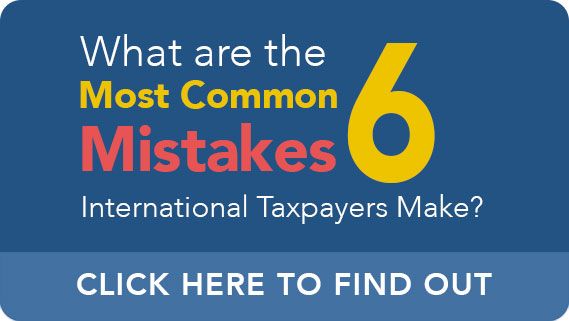U.S. Tax Accountant for CFC Filings
When even the simplest tax filings are convoluted and demanding, those who have to contend with specific situations – such as those involved with a controlled foreign corporation, or CFC – can wind up lost in the U.S. tax system. Knowing just what to file and how to file it can be tough for even professionals to determine at times, and considering the impact a mistake can have on a person’s financial standing and legal situation, the stakes could hardly be higher. That’s why it’s important for taxpayers who own shares in a CFC or who have some measure of control over the company to consult a specialist regarding their government-mandated CFC filings.
The experts at U.S. Tax Help have helped many clients navigate the intricacies of international tax law and deal with the Internal Revenue Service. Our team is led by Ted Kleinman, a licensed CPA with more than 30 years’ experience in international tax preparation and planning. With assistance from Ted and his team, you can be confident that all your tax filings will be handled in a competent, professional manner. To learn more about the services available at U.S. Tax Help or to set up a consultation, visit us online or call (541) 362-9127 today.
Taxes on Controlled Foreign Corporations (CFC)
There are a number of common misconceptions surrounding the nature of a controlled foreign corporation (CFC) and who must report their connections to one. To put it plainly, a CFC is any corporate entity that is based in another country but controlled by a U.S. citizen or citizens. To meet this standard, a corporation does not have to be owned by one person or business entity alone; as long as more than half the controlling interest is held by Americans, that company is considered a CFC, and all those with authority over the company must report their involvement to the IRS. Similar requirements are imposed on shareholders and officers of specified foreign corporations (SFCs), which can be either a CFC or any foreign corporation that counts a domestic corporation among its shareholders.
How to File CFC Taxes
The government requires that stockholders and corporate officers of CFCs use Form 5471, Information Return of U.S. Persons With Respect to Certain Foreign Corporations, to report their role in the company and any income they might have earned from it. These reporting requirements apply to five different groups, the descriptions of which are available on the IRS’s instructions for Form 5471; those filling out the form must specify which category applies by checking the appropriate box.
- Category 1: This classification applies to any U.S. shareholder with ownership of at least 10% of the stocks of an SFC.
- Category 2: This category applies to any American citizen or resident who serves as an officer or director of a foreign corporation, though only if at least 10% of the stock is owned by one U.S. person or company.
- Category 3: Any individual stockholder who owns, purchases, or otherwise acquires 10% of the stock or 10% of the stock-related voting power in the corporation should file under this category. This also applies to foreign citizens who own 10% of the stock before becoming a U.S. person or stockholders who owned at least 10% but reduced their interest below that threshold at any point in the year.
- Category 4: This classification is for any U.S. citizen or resident who has a controlling interest in the CFC’s stock, either because they own more than 50% of the total share value or have more than 50% of the voting power among stockholders.
- Category 5: This last category is for American shareholders who own 10% or more of the shares of a CFC at any point in the tax year of that corporation.
As you can see, these categories are typically reserved for stockholders who possess at least one-tenth of the total shares of the corporation. Those with fewer than that amount are likely exempt from these reporting requirements; other exemptions exist as well, though these are too complex to describe here. A qualified international tax specialist can better explain these exemptions and whether they apply in your case.
Subpart F Income Document in CFC Filings
A common term referenced in CFC-related tax documents is “Subpart F,” which is certain to be confusing to many taxpayers, given that there is no explanation of this tax provision on Form 5471 or in its instruction packet. Generally speaking, Subpart F income refers to CFC earnings that may not be distributed during the tax year but which are still counted as taxable income.
In other words, U.S. shareholders are taxed on their portion of the CFC’s earnings for the year, even if they have not yet actually been paid those dividends yet. There are several different categories of Subpart F income, the biggest of which are foreign base company sales income (FBCSI), foreign personal holding company income (FPHCI), and foreign base company services income. A skilled CPA can better explain the implications of Subpart F income and how it might impact your income taxes and CFC filing requirements.
Experienced International Tax Experts Available for CFC Filing Assistance
The team of accountants at U.S. Tax Help is skilled in handling all aspects of international taxation, no matter how complicated. If you or someone you know is a U.S. citizen or resident living abroad, or if you live in the U.S. but have financial ties to foreign business entities, the specialists at U.S. Tax Help can ensure full compliance with the IRS while helping you limit your overall tax liability. To learn more about all our services or to speak with a qualified accountant, visit us online or call (541) 362-9127 and set up your first consultation.
